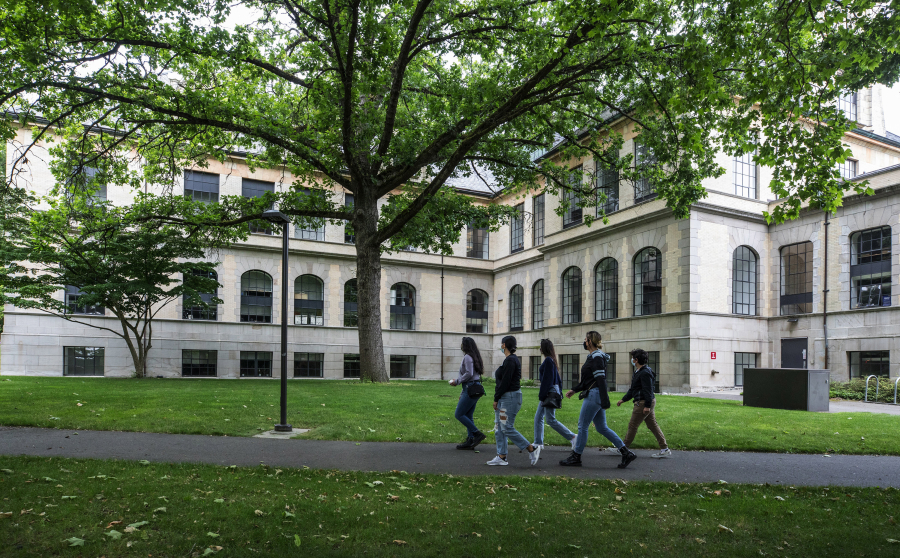SEATTLE — Stacey Hines, a junior at the University of Washington, never considered himself an activist until last summer’s George Floyd protests in Seattle and nationwide led him to think more deeply about his involvement in social justice issues.
“Seeing the demands (Seattle protesters) posted over the summer and seeing the work being done on campus really inspired me to be a part of that,” he said.
Hines is one of thousands of college students throughout the United States and Canada who have joined a widespread, university-based coalition that’s pushing for lasting change within all police forces, but specifically those within educational institutions, including public and private K-12 schools, universities and vocational and professional schools. As of last week, groups representing more than 80 colleges and universities — including the University of Washington and Seattle University — have banded together to make up the Cops off Campus coalition.
Their demands are similar to those that many protesters and activists have pushed for in their local law-enforcement agencies in the year since Floyd was murdered in Minneapolis. Some groups are asking their school administration to slash police budgets and redirect funds to student groups. Some want to disarm all their on-campus officers. Others are working to completely abolish school police.
“(Students) see educational spaces as sites where the norms of not just current society but future society are made,” said Chandan Reddy, a UW professor of gender, women and sexuality studies who has been in Cops off Campus meetings since its inception last fall. “What we allow and don’t allow on campus and what kinds of conversations we have about those choices really do shape all students as future citizens about what the norms of a social order look like.”
The coalition of schools is wrapping up “Abolition May,” a monthlong series of rallies, teach-ins and solidarity events at each school. Each day of action was organized by the school’s respective group.
“The interest, the investment, the pressure, the direction action, the response from various institutions — it’s all more than we could have hoped for,” said SA Smythe, one of the founding members of Cops off Campus and an assistant professor at the University of California, Los Angeles. “And dozens of groups are still joining the call.”
In the Pacific Northwest, UW and Seattle U. held their joint day of action at UW’s Seattle campus May 24.
Megan Ybarra, a UW geography professor who helped create a group called Decriminalize UW and organize the weekend teach-in, told the roughly 40 people who showed up that she got involved after last summer’s protests prompted her to reflect on how people could hold their own individual institutions accountable.
UW’s Black Student Union and Decriminalize UW submitted a list of demands to its administration last fall, which includes disarming police officers, cutting the $8.2 million police budget by at least $6 million and dismantling a George Washington statue on campus, which activists say pays homage to slave owners.
In response, the UW Police Department has made several changes, said the department’s Maj. Steve Rittereiser, who’s worked at the school for 11 years.
The department has cut 20 percent of its staff — about seven positions, mostly through attrition. It also launched a new online citizen reporting system, which aims to “significantly reduce armed police response and armed police interactions on campus,” according to a letter UW President Ana Mari Cauce and provost Mark Richards sent to the school community in September.
“We acknowledge that we can and must do more to support you and to create the kinds of institutional changes needed to build a more inclusive environment that will lead to more equitable outcomes in education and beyond for our Black and BIPOC students,” the letter said. “To this end, we commit to continuing to work with you, and with all our students, faculty and staff.”
The police department has also created a new team of campus safety responders, whom Rittereiser describes as unarmed campus ambassadors that respond to after-the-fact calls, like bike thefts or car or property damage. The department has hired two campus safety responders, and is planning to bring on at least four more before the fall, he said.



